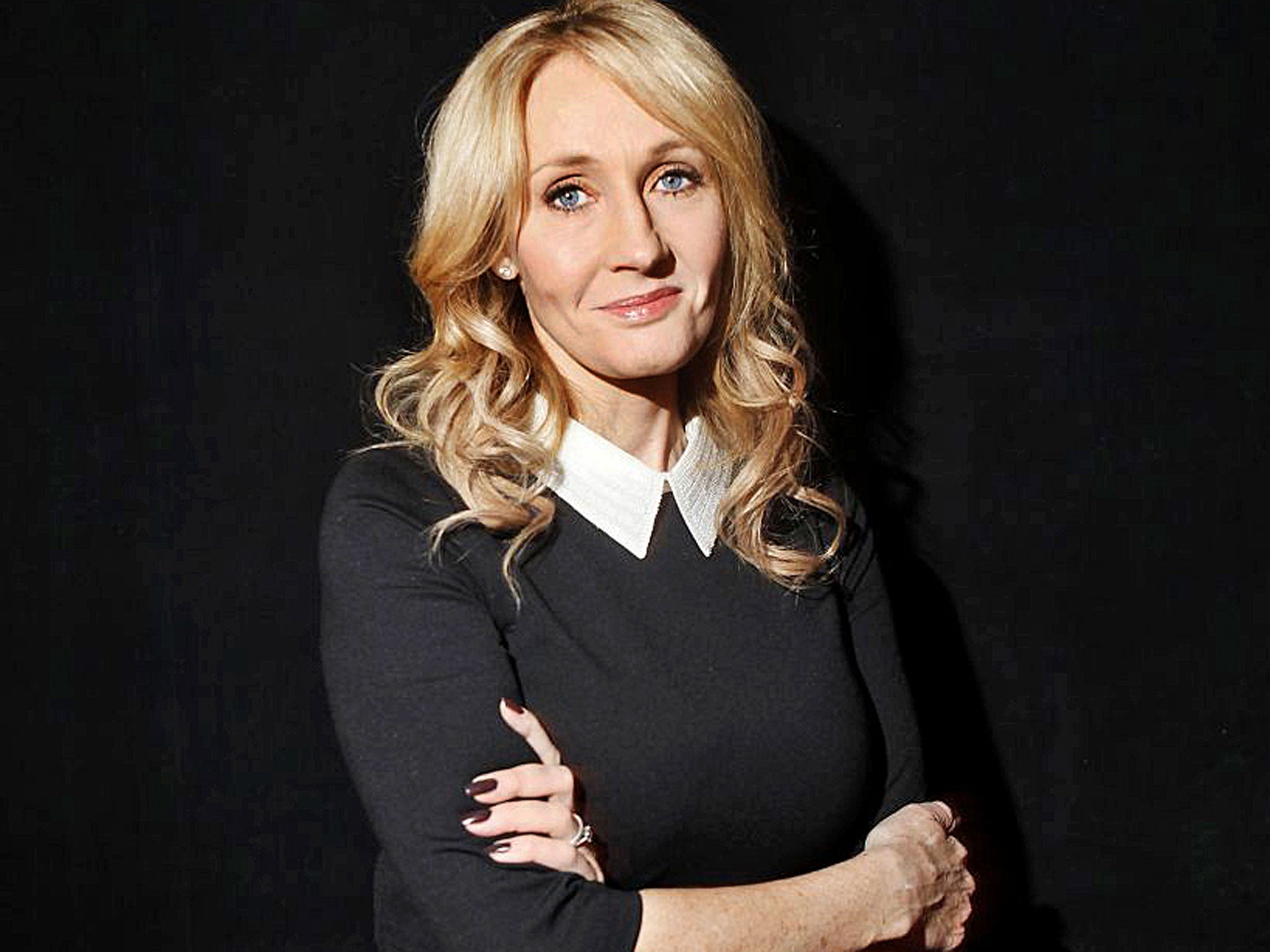JK Rowling, Harry and Hermione: Harry Potter's neverending story
JK Rowling says she now regrets yoking Hermione Grainger to Ron Weasley. But should authors leave well alone once they’ve finished writing?

Your support helps us to tell the story
From reproductive rights to climate change to Big Tech, The Independent is on the ground when the story is developing. Whether it's investigating the financials of Elon Musk's pro-Trump PAC or producing our latest documentary, 'The A Word', which shines a light on the American women fighting for reproductive rights, we know how important it is to parse out the facts from the messaging.
At such a critical moment in US history, we need reporters on the ground. Your donation allows us to keep sending journalists to speak to both sides of the story.
The Independent is trusted by Americans across the entire political spectrum. And unlike many other quality news outlets, we choose not to lock Americans out of our reporting and analysis with paywalls. We believe quality journalism should be available to everyone, paid for by those who can afford it.
Your support makes all the difference.Do authors own their characters? And if a writer retrospectively meddles with the fate of a beloved figure, should fans pay attention? Cauldrons have spluttered and wands drooped all over the Potterverse since JK Rowling announced – in an interview with Wonderland magazine – that she should never have yoked Hermione Grainger with Ron Weasley at the end of Deathly Hallows.
Instead, Harry himself should have clicked with Herm. “I wrote the Hermione-Ron relationship as a form of wish fulfilment,” Rowling now says. “For reasons that have very little to do with literature and far more to do with me clinging to the plot as I first imagined it, Hermione ended up with Ron.”
This storm in a sorting-hat may prompt some Muggles to reflect that Potter maniacs should just – well, get a Rowling-free life. But the hurt and outrage at this instance of authorial hindsight points to a very modern form of an ancient practice. Since the days of The Odyssey and The Iliad, epic narrative cycles have spun off endless new incarnations for the people and plots within them. Readers and hearers have always made the storytellers’ myths their own – right up to the fan-fiction websites that rewrite Jane Austen’s novels as vampire-slasher melodramas or recast Kirk and Spock from Star Trek as long-term lovers.
So why should JKR’s fanbase fret if she changes her mind? Enter modern intellectual-property law. Since her early battles with the pirates over rip-off Potter merchandise, not to mention the rogue editions that spread all over the globe, Rowling has – for good, self-protective reasons – turned into a vigilant controller to match Dolores Umbridge, Professor of Defence against Dark Arts.
This fierce defence of copyrights has led her to place an unusually heavy hand on the post-books trajectory of the wizard and his chums. Notably, the 2012 launch of the Pottermore website – in conjunction with Sony – signalled an intention to manage the entire Potter experience for dedicated followers.
In return, they gained access to extra chunks of back-story and an ever-expanding variety of interactive treats (mixing spells, duels with rival houses, etc). Vitally, Pottermore became the sole distributor of Rowling’s e-book editions. This territorial stranglehold has clearly worked for many fans. Dutifully, they feel dismay when the all-powerful brand manager reveals her second thoughts.
Rowling is not the first adored bestseller to seek to tweak her published work. Famously, Charles Dickens – one of the first modern examples of a literary giant whose characters broke free to live their own pop-cultural lives – revised the ending of Great Expectations.
Again, the twist turned on marriage. In the 1861 original, sadder-and-wiser Pip and his ice queen Estella definitively part. In the revision, they seem to get together – although Dickens’s ambiguous line “I saw the shadow of no parting from her,” does leave other options open.
From Peter Rabbit and Hercule Poirot to Sherlock Holmes and James Bond, the money-spinning icons of modern literature have fallen one by one into the hands of franchise lawyers and estate enforcers. But the Hogwarts crew have joined this select company with unparalleled swiftness.
Uniquely, Rowling has also overseen every aspect of their multimedia marketing, from the movies to Lego sets and computer games. Hence, perhaps, some disgruntled fans’ belief that her backtracking opinions have the power to sway their private fantasies. However, only the obedient will really care. Go to harrypotterfanfiction.com and you will find (as of yesterday) 81,472 entirely unauthorised Hogwarts and post-Hogwarts tales – all of them beyond the reach of the Pottermore police.
Join our commenting forum
Join thought-provoking conversations, follow other Independent readers and see their replies
Comments